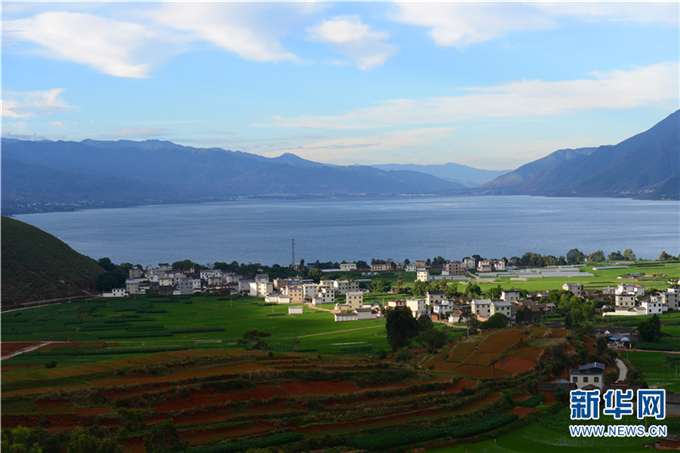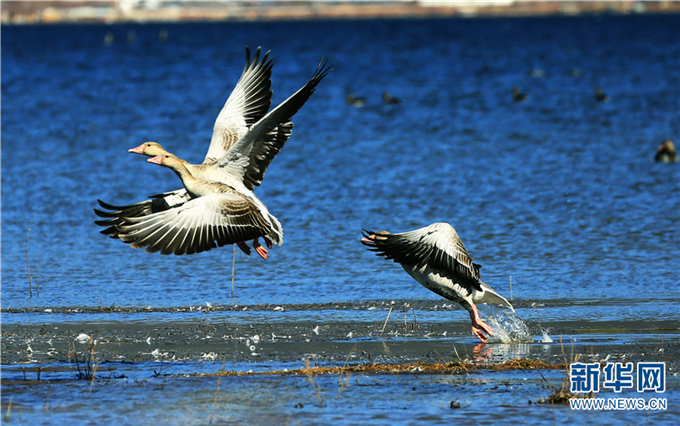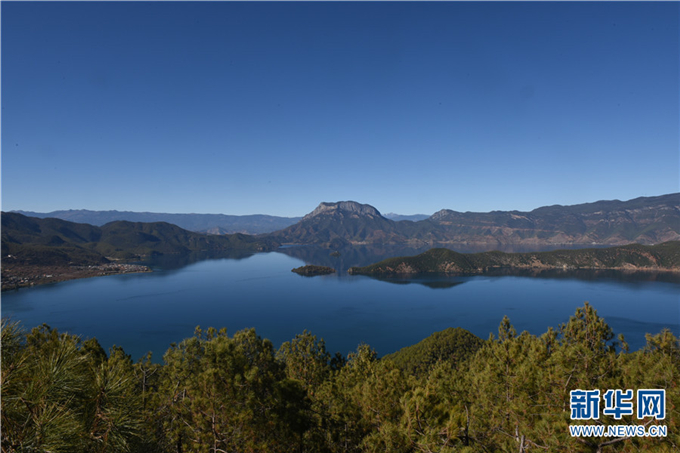River chiefs bring clean water back to Lijiang

Mornings at Chenghai Lake are quiet and peaceful. [Photo by Zhang Hu/xinhuanet.com]
Lijiang, a renowned tourist city in Yunnan province, has seen strong results since it began implementing its "river chief system" in June 2017 to protect local lakes, rivers, reservoirs and canals.
Lijiang has established a four-level river chief system which includes rivers in local municipalities, counties, townships and villages as well as a two-level inspection system and relevant supporting policies.
Chen Biao, head of the Lijiang water authority, stated that Lijiang has set up a total of 1,199 river chiefs, including 16 for city-level rivers, 443 for township-level rivers, and 665 for village-level rivers. As many as 2,355 patrols have been set up on countless rivers under the river chief system in 2017.

Three migratory birds fly over Lashi Lake in Lijiang. [Photo by Wang Zhongsheng/xinhuanet.com]
Lijiang also established 762 sign boards across the city promoting the river chief system and employed 33 people to supervise the implementation of the system in 2017.
Chen said that last year Lijiang achieved remarkable success in the protection and management of Lugu Lake and Chenghai Lake, the comprehensive management of the water environment around the Yanggong River, and the improvement of the tourism market at Lashi Lake.
This year the city will establish an information platform for river chiefs and a monitoring and evaluation system for rivers, lakes, reservoirs and canals.

The beautiful Lugu Lake in Lijiang. [Photo by Li Ning/xinhuanet.com]
At the end of 2016, Chinese central authorities issued guidelines for appointing local government heads as river chiefs across the nation to clean up and protect its water resources.
As mayors and county heads are responsible for cities and counties, river chiefs are responsible for the management and protection of water resources, according to a document forwarded by the general offices of the Communist Party of China Central Committee and the State Council.
Editor: John Li